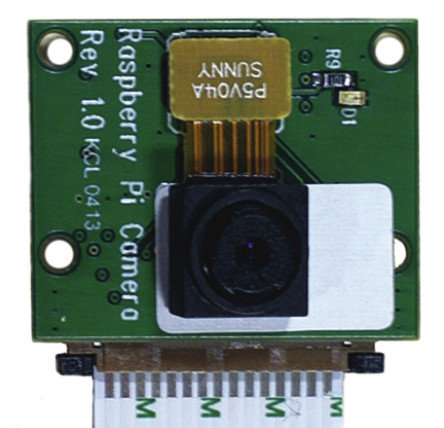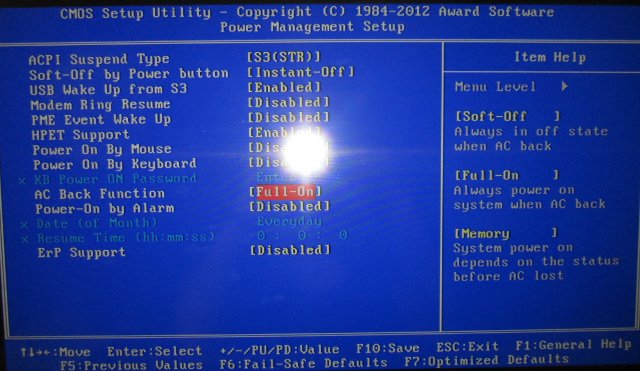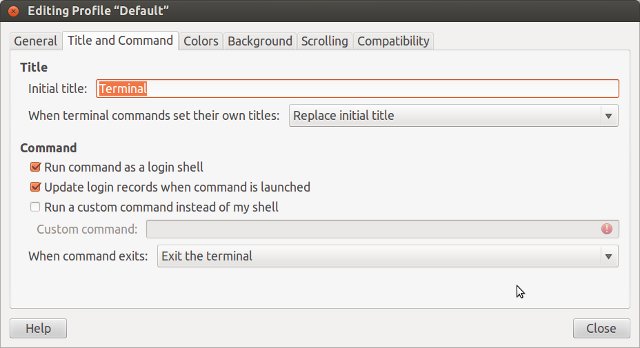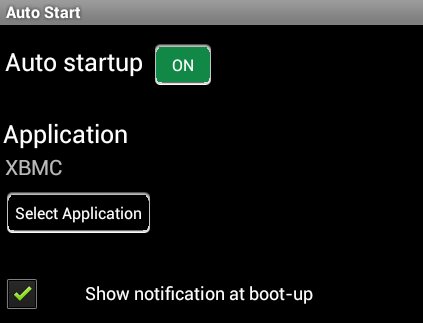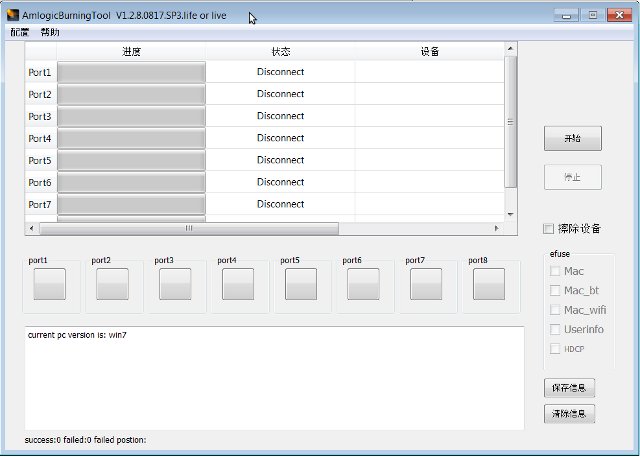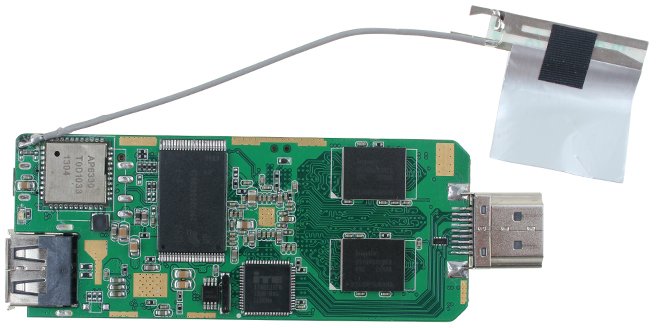About one year after showing the first image from the camera module prototype, the Raspberry Pi Foundation announced the Camera board is now available for purchase on RS Component or Element14. Navigating either of these sites is a nightmare, but, if you’re lucky, you should eventually find the camera board for around $25 before taxes and shipping. “Raspicam” features the following hardware specifications: Omnivision 5647 sensor in a fixed-focus module 5MPixel sensor Still picture resolution: 2592 x 1944 Max video resolution: 1080p Max frame rate: 30fps Size: 20 x 25 x 10mm Connection by flat ribbon cable to 15-pin MIPI Camera Serial Interface (CSI) connector S5 on Raspberry Pi computer board The first thing you’ll have to do with the camera is to connect it to the CSI connector on your Raspberry Pi, just behind the Ethernet connector on model B. James explains it very clearly in the video below. […]
How to Detect if an ARM ELF Binary is Hard-float (ARMHF) or Soft-float (ARMEL)
If some cases you may want to know if a library or binary built for the ARM architecture is using hard-float (armhf) or soft-float (armel). You can analyze ELF binary using readefl utility, so let’s have a try. First let’s install some armel and armhf files on a computer running Ubuntu by install gcc/g++ toolchain for armel and armhf:
|
1 |
apt-get install g++-arm-linux-gnueabi g++-arm-linux-gnueabihf |
We now have armhf and armel libraries installed in /usr/arm-linux-gnueabihf/lib and /usr/arm-linux-gnueabi/lib respectively. Let’s check the output of readelf filtered with “FP” string for libm.so.6 for armel:
|
1 2 3 4 5 6 7 |
readelf -a /usr/arm-linux-gnueabi/lib/libm.so.6 | grep FP Tag_FP_arch: VFPv3-D16 Tag_ABI_FP_denormal: Needed Tag_ABI_FP_exceptions: Needed Tag_ABI_FP_number_model: IEEE 754 Tag_ABI_HardFP_use: SP and DP |
and armhf:
|
1 2 3 4 5 6 7 8 |
readelf -a /usr/arm-linux-gnueabihf/lib/libm.so.6 | grep FP Tag_FP_arch: VFPv3-D16 Tag_ABI_FP_denormal: Needed Tag_ABI_FP_exceptions: Needed Tag_ABI_FP_number_model: IEEE 754 Tag_ABI_HardFP_use: SP and DP Tag_ABI_VFP_args: VFP registers |
Great, so there’s an extra line for armhf (Tag_ABI_VFP_args) that seems to confirm the library is hard-float. With readelf compiled from elftoolchain-0.6.1 (source code), the extra line will be a bit different: “Tag_ABI_VFP_args: AAPCS (VFP variant) AAPCS stands for ARM Architecture Procedure Call Standard. You can read more details on ARM website. There are also two other possible values […]
How to Use Libhybris and Android GPU Libraries with Mer (Linux) on the Cubieboard
You may have heard about libhybris, a library that cleverly loads Android HW adaptations and convert calls from bionic to glibc. One of the greatest achievement of this library is to allow Android GPU drivers to be used with Linux, and is notably used by Canonical, although they did not write it, for Ubuntu 14.04 which will be compatible with any recent Android smartphones or tablets. One way to get started with libhybris is to port a device to Ubuntu Touch, but this may take a while. However, I’ve found a faster and easier way to play with libhybris thanks to Martin Brook (vgrade) who wrote a tutorial on how to use libhybris with Mer on the Cubieboard. Mer is an open source mobile Linux distribution powered by Qt/QML and HTML5, that’s born from the ashes of Meego, and is now used in the upcoming Sailfish OS. You’ll need to […]
How-to Autostart a PC Automatically When Connecting it to the Mains Power
I’ve decided it would be good if I could just hide the computer under the table, as I never use the DVD writer, and I can access USB ports for removable storage or debug board via a USB hub on my table. The only problem is that I would have to go under the table to press the power button each time I want to power on the computer. Feasible, but not very convenient. Every morning, I connect a power strip to the mains supply for my computer, monitor, and related equipment, so it would be good if the computer could just start when I connect it. I found out there’s an option in the BIOS of my main board to do just that. Most other people seem to use that feature to be able to automatically restart their computer after a power failure so that they can access it […]
Undistract-me Sends An Alert For Time-Consuming Commands in Linux
In Linux, some commands executed in the terminal such as make, wget, dd may take a while, so usually you’d just let them run in the background, and do some other work, drink tea, go for nap… while they are running, and come to check from time to time if the command has completed. Sometimes I even forget I run a particular command, and realize it has completed a few hours ago… It’s possible to add some command at the end of your command line, but it can be cumbersome, and you may forget to do it. The best would be automatic alerts for commands that take a long time, and undistract-me just takes care of that by sending an alert for commands that take more than 10 seconds (by default). In Ubuntu 12.04 and 12.10, you can install undistract-me as follows:
|
1 2 3 |
sudo add-apt-repository ppa:undistract-me-packagers/daily sudo apt-get update sudo apt-get install undistract-me |
Undistract-me is part of Ubuntu 13.04 or […]
How to Autostart XBMC in Android
Android is great thanks to its versatility and the ability to install the apps you need. However, if you have an Android set-top box or mini PC connected to your TV, you may just want to use it as a media player running XBMC, and clicking on the XBMC icon each time you start your device is not ideal. Luckily, there’s an easy solution to autostart XBMC or any application in Android: Install AutoStart – No root in your Android device. Run the application and select XBMC as shown below. There’s no need to tick “Show notification at boot-up”, since XBMC will just show in the foreground. Done! Next time you restart your device XBMC will run automatically. I’ve tried it in Tronsmart Prometheus, and it boots to XBMC within 50 seconds. If you want to use another app in Android, simply exit XBMC. Jean-Luc Aufranc (CNXSoft)Jean-Luc started CNX Software […]
Droid Stick A2 mini PC Recovery with AMLogic’s Hardware Flash Tool
In some circumstances, for example by installing the wrong firmware or doing something wrong by playing god (as a root user), it’s possible to brick your device. This happened to me with one of my Droid Stick A2 mini PCs based on AMLogic AML8726-MX. I changed some files in /system/etc/permissions directory, lost Wi-Fi access, and even replacing my changes with the backup files would not solve the problem. It also changed some permissions in the system, and it was not possible to restore the firmware the usual way. At the end of last month, dbtablets left a comment with download links to “Amlogic USB Burning tool”, but I only decided to give it a try today, and after some efforts I was successful. Just make sure you only use this method as last resort, i.e. a standard firmware upgrade does not work, and you’re about to throw your device in […]
How to Root Rockchip RK3188 mini PCs
CloudnetGo CR9 was the first Rockchip RK3188 mini PC I had ever seen reported, but since then others apparently based on the same board have started to show up including Tronsmart T428, Rikomagic MK802 IV, as well as Ugoos UG802B, UG007B and MK809 III. We’ll get a lot of choices, but most of time the firmware does not provide root access. I noticed AndroidPC.es published instructions to root those device in Spanish yesterday, but today, Geekbuying rooted the Ugoos devices with the same method used for RK3188 Tablets. You have to follow those 5 simple steps: Make sure USB Debugging is enabled on your mini PC (Settings -> Developer Options) Connect your RK3188 mini PC to a Windows PC via the USB port. Your PC should detect a new device, and try to install the driver. You can download the driver at https://www.dropbox.com/s/uqisjj4hqftlaxa/GEEKBUYING_Rockchip_Batch_Tool_v1.6.rar (password: GEEKBUYING.COM) After having installed the driver, download […]


